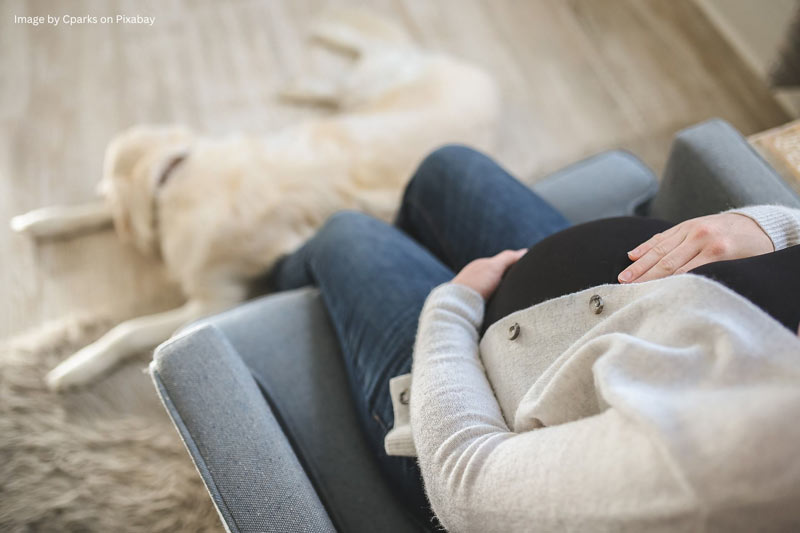
The Journey to Conception
Deciding to have a baby is an exciting and emotional milestone. Many couples take steps to improve their health and boost their chances of conceiving, even if they don’t have any known fertility issues. One natural method that’s been gaining more attention is acupuncture. This ancient practice has been used for centuries to support reproductive health, and it might just be the missing piece in your fertility journey. Let’s dive into how acupuncture works, which points can enhance fertility, and how to prepare your body for conception.
At MK Integrative, we specialize in fertility acupuncture, offering personalized treatments to support your reproductive health and overall well-being. Our team of experienced practitioners is dedicated to helping you on your journey to parenthood with a natural and holistic approach.
How Does Acupuncture for Fertility Work?
Acupuncture is an age-old therapy that can complement medical treatments while also naturally improving fertility. While it may not directly treat certain medical conditions like endometriosis or pelvic inflammatory disease, it plays a key role in overall reproductive wellness.
How Acupuncture Can Help with Fertility
- Reduces stress and anxiety – Stress can throw off hormones and even lead to miscarriage.
- Supports thyroid function – Helps balance both hyperthyroidism and hypothyroidism.
- Improves blood flow to the ovaries – This can enhance egg quality.
- Balances hormones – Creates the ideal conditions for conception.
- Strengthens the uterine lining – Increases the chances of successful implantation.
- Boosts IVF success rates – Can improve implantation and lower the risk of miscarriage.
Getting Your Body Ready for Conception
If you’re thinking about trying acupuncture for fertility, experts recommend starting treatments about 3 to 4 months before you plan to conceive. This gives your body time to adjust and optimize reproductive health. It is also wise to consider adopting a nutrient-rich diet to maximize the benefits of acupuncture.
Foods That Support Fertility
- Flax Seeds – Packed with Omega-3 and Omega-6 fatty acids, B vitamins, and minerals that help balance hormones.
- Sesame Seeds – A great non-dairy source of calcium, iron, and protein.
- Nuts – Provide healthy fats, protein, and fiber, all important for fertility.
- Goji Berries – Loaded with antioxidants that help improve sperm count and support follicle development.
- Brown Rice – Rich in B vitamins and fiber, which help regulate blood sugar.
- Legumes (Beans & Lentils) – A fantastic source of plant-based protein, folate, and minerals essential for reproductive health.
- Seaweed (Nori) – High in vitamin A, B vitamins, iron, and zinc to support hormone production.
- Artichokes – Full of important fertility-boosting vitamins and enzymes that help digestion.
- Sprouts – Help create an alkaline environment, which is ideal for sperm survival.
- Eggs – Provide choline, a key nutrient for hormone balance and fetal brain development.
Acupuncture Points for Fertility
An experienced acupuncturist will target specific points in your body to support reproductive health and overall well-being.
Key Acupuncture Points for Fertility
- Yin Tang (Third Eye) – Helps reduce stress, anxiety, and insomnia.
- Liver 3 (LV3) – Regulates menstrual cycles, improves blood flow, and eases stress.
- Kidney 9 (Beautiful Baby Point) – Supports circulation and calms the mind.
- Zi Gong (Palace of the Child) – Boosts uterine and ovarian health. (Avoid deep stimulation if trying to conceive or pregnant.)
- Ren 3, 4, 6 & 12 (Conception Channel) – Helps balance reproductive hormones and function.
- Spleen 6 (SP6) – Supports menstrual health, eases anxiety, and benefits the uterus.
- Stomach 36 (ST36) – Enhances energy levels, improves blood circulation, and stabilizes emotions.
At MK Integrative, our fertility acupuncture treatments focus on these strategic points to help regulate your cycle, improve egg quality, and increase implantation success.
What to Expect at Your First Acupuncture Appointment
Your first session at MK Integrative will usually include:
- A detailed chat about your fertility history and health concerns.
- A customized treatment plan tailored to your needs.
- The placement of tiny, painless needles in specific acupuncture points to enhance fertility.
Most people find acupuncture incredibly relaxing, and many even fall asleep during the session. Depending on your needs, our acupuncturists may recommend weekly or bi-weekly treatments for the best results.
Does Acupuncture Really Work for Fertility?
The effectiveness of acupuncture varies from person to person, but research suggests it can significantly improve fertility outcomes. While success rates vary, acupuncture is widely recognized as a valuable complementary therapy that supports reproductive health without any harmful side effects.
If you’re thinking about trying acupuncture as part of your fertility journey, speaking with a licensed acupuncturist and your doctor is a great first step. At MK Integrative, we work closely with our clients to create personalized treatment plans that support both natural conception and assisted reproductive techniques.
Final Thoughts
Choosing acupuncture as part of your fertility journey is a deeply personal decision. Beyond its benefits for conception, it can also help relieve pregnancy-related symptoms like morning sickness, fatigue, and stress. If you’re looking for a natural, holistic approach to boosting fertility, MK Integrative is here to help.
For expert guidance, reach out to our experienced fertility acupuncturists and see how acupuncture can support you on your path to parenthood. Learn more about our fertility acupuncture services at MK Integrative.
